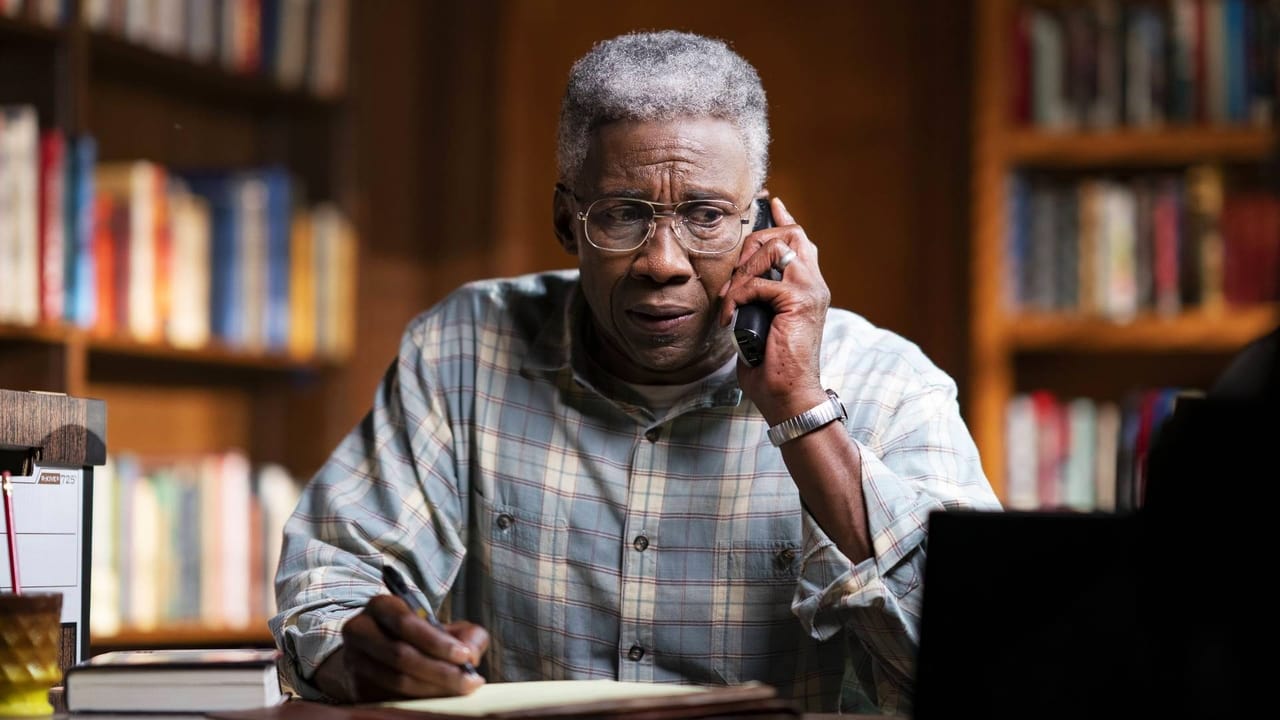 |
| Photo: HBO |
"Now Am Found," a take on a lyric from "Amazing Grace," noticeably leaves out the word "I." Wayne has been spent much of his life unsure of who he is; he listened to his mother and then joined the Army, then became a cop because it seemed like something he should do. In middle age, when he worked as a campus security guard on a campus where Amelia taught, he appeared to settle into another comfortable role. "What you think you are, it made you stuck," Amelia once told him. Even now, in old age, he is still stuck, working to solve a mystery everyone else has long forgotten about; the difference now is he has lost his ability to push back his past, struggling not only to retain his memories but to handle the emotional weight of them, to process the different stages of his life as his days get shorter.
Back in 1990, Ed Hoyt takes Wayne out into the woods to question him about Harris James' whereabouts. Wayne holds fast in his denial about what happened, even after Hoyt reveals Harris' beeper had a GPS tracker that could lead him right to his last location. Wayne offers to trade confessions, but Hoyt cryptically advises him letting Julie be is for the best. Later, when Amelia finds him in a bar, the two have the most intimate and empathetic conversation they've had all season. Amelia, understandably concerned after finding her husband burning his clothes at three in the morning, pushes Wayne to come clean about everything. However, he refuses, carefully but firmly explaining he shared too much of his job with her out of a need for her approval, and their life together is wrapped up in "a dead boy and a missing girl." Amelia agrees and encourages him to find something he could be good at, and he encourages her to not limit herself as a writer.
And that, in a nutshell, is the whole sad story. Or is it? Amelia's ghost visits Wayne again, helping him connect the dots between Mike Ardoin, the boy who took her disappearance the hardest, and the grown man he and Roland encounter at the convent whose daughter, named Lucy, resembles a young Julie Purcell. Amelia suggests the nuns told their own story, one where Julie "died" but actually went on to live a quiet existence, safe from those who'd try to harm her. Wayne goes to the Ardoin address and sees a woman who's likely Julie Purcell. However, he suffers another memory lapse and calls Henry for help. Later, Henry takes the note containing the Ardoins' address and crumbles it, telling his father to go play with his grandkids. A convenient plot twist, albeit a plausible one, and one that allows both Julie and Wayne, whose lives have been defined by forces larger than themselves, to find some sense of peace.
"Did I lose you?" Wayne asks his daughter Becca, who's come to visit. "No," she answers, choking up as she holds his hand. As he watches his grandchildren ride their bikes up the street, Wayne's mind travels back to 1980, at the same bar where he and Amelia would recommit to their marriage ten years later. Their first reconciliation comes after a fight over the fallout of Amelia's article about the investigation. Nursing a drink and a bruised ego, Wayne softens and apologizes. When she asks if he wants to try again, he stutters and stumbles over his words, barely able to express how much Amelia's presence has turned his life upside down, stirred in him emotion he's become so accustomed to tamping down. The tear rolling down his cheek and saying "I think I wanna marry you," makes his point, however. He and Amelia walk out the door and into a bright light. The last shot we see is of Wayne as a young soldier in Vietnam, where his own story of life and loss and ultimately healing, began.
Comments